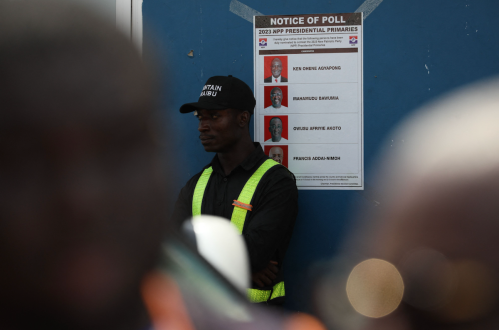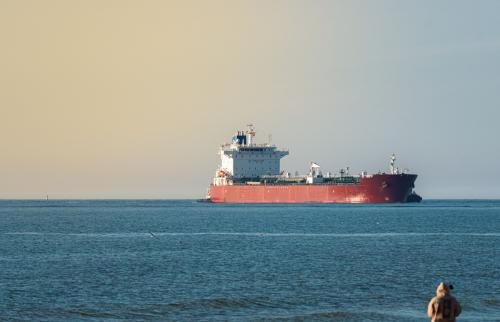Nigerian Oil Graft Report Sheds Light on “Missing” $20 Billion
In 2013, the Nigerian central bank governor at the time, Lamido Sanusi, presented a 300 page dossier to the Nigerian parliament illustrating vast corruption within its state oil firm, the Nigerian National Petroleum Corporation (NNPC), which he alleged had failed to remit approximately $20 billion in oil revenues to the state between January 2012 and July 2013. Although a senate committee investigated and dismissed his claims (and Sanusi was sacked in February 2014,) Minister of Finance Ngozi Okonjo-Iweala followed up on these charges in April 2014, calling upon PricewaterhouseCoopers (PwC) Nigeria to conduct a forensic audit on the oil firm to account for the purportedly missing payments.
PwC Nigeria released its final report to the public on Thursday, February 5, which found that from the period of January 2012 to July 2013 the NNPC owes the government $1.48 billion in payments which need to be remitted to the federation account. However, according to a NNPC spokesperson, these outstanding remittances come from “signature bonus, taxes and royalties on the assets transferred to the company” rather than missing oil revenue payments, which have all been accounted for now by the audit. The report also called for a complete restructuring of the NNPC as its model is “unsustainable,” considering that it spends 46 percent of national oil revenues on operations and subsidies and is unable to provide monthly remittances to the government without taking on third-party liabilities.
IMF Debt Relief Package and New Interest-free Loans Issued to Countries Hit by Ebola
The International Monetary Fund (IMF) has granted Guinea, Liberia and Sierra Leone approximately $100 million in debt relief in order to reduce the financial burden on the countries hardest hit by the Ebola epidemic. Typically the IMF only offers loans to countries facing dire economic circumstances; however, this grant will be issued as a part of a new trust that will provide debt relief to countries facing national emergencies such as natural disasters or epidemics. As a part of the package to the countries affected by Ebola, the IMF has also made available an additional $160 million of interest-free loans and called upon other international lenders to provide additional support where possible.
In related news, a study conducted by the United Nations Office for the Coordination of Humanitarian Affairs highlighted how of the $2.9 billion in emergency assistance promised to the affected countries in 2014, only 40 percent of these funds—which covered only two-thirds of the countries’ needs—had reached their destinations by the end of the year. The lead researcher of the study, Karen Grepin of New York University, has argued that the delay in distributing the pledged funds to the target countries may have facilitated the virus’ spread and increased long-term spending needs in the region.
UNECA Report Highlights Drain of Illicit Financial Flows on the Continent
This week, the High Level Panel on Illicit Financial Flows headed by former South African President Thabo Mbeki released a report demonstrating that African countries lose nearly $60 billion a year due to illegal capital outflows, which have cost the continent nearly $1 trillion over the past 50 years. These illicit outflows predominantly stem from commercial firms engaging in tax evasion and undervaluing services and traded goods, while government corruption and organized criminal activities also play a considerable role in the capital flight. Thabo Mbeki stressed that this loss in capital has had a severe impact on development opportunities lost. Oxfam South Africa has called for African governments to “tackle lax trade regulation, inconsistent tax policy and enforcement, collusion, and corporate greed,” as a result of the report’s findings.
The Brookings Institution is committed to quality, independence, and impact.
We are supported by a diverse array of funders. In line with our values and policies, each Brookings publication represents the sole views of its author(s).




Commentary
Africa in the News: Nigerian Oil Firm Undergoes Audit, IMF Provides Debt Relief to Ebola-hit Countries, and Illicit Financial Flows Cost Africa $60 Billion
February 6, 2015